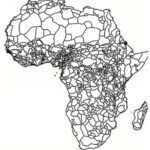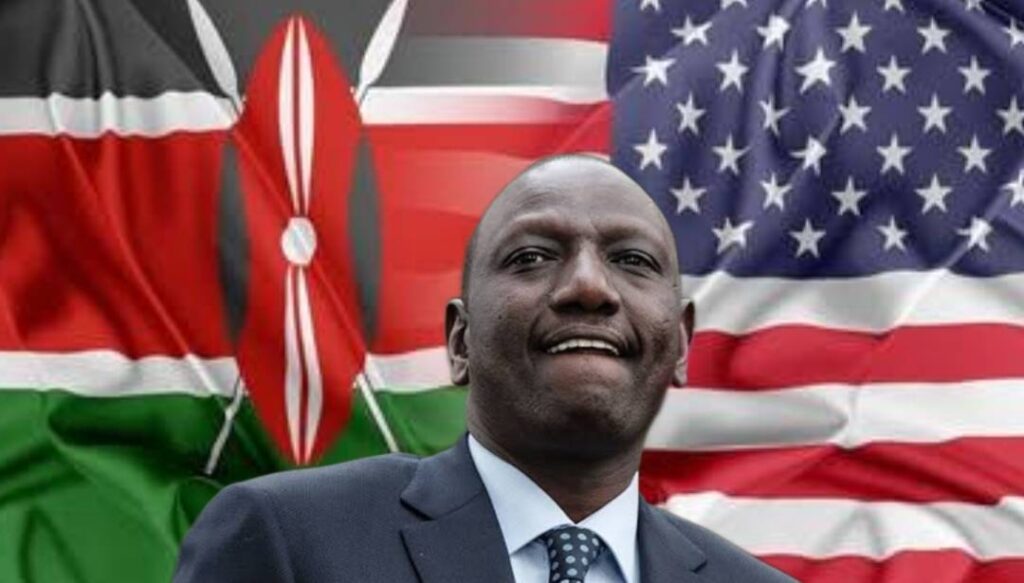Africans are becoming more skeptical of America’s involvement in their continent and are starting to favor the presence of China and Russia. This shift in sentiment is highlighted in a recent Gallup poll. With Western influence on the decline, the visit of Kenyan president William Ruto to Washington last month held significant symbolic importance. After a red carpet reception and a lavish state dinner with five hundred guests, Ruto returned with all kinds of financial goodies. President Joe Biden named Kenya as the US’s first “major non-NATO ally” in sub-Saharan Africa in what was the first state visit to the US for an African leader in nearly 16 years.
American troops were compelled to depart from the Sahel nations due to the prevailing anti-French sentiments in Mali, Burkina Faso, and Niger. In Niamey, the capital of Niger, the American soldiers were still packing their things when Russian troops from the Africa Corps (formerly the Wagner mercenary army) entered their bases. Washington is actively seeking a new counter-terrorism ally in East Africa, while Ruto aims to establish himself as a pan-African leader, addressing crucial issues such as trade, security, climate, and finance across the continent.
Most of the commitments for Kenya came from the US private sector. The biggest present is the promise of an American company to build a more than four hundred kilometer long highway from the capital Nairobi to the port city of Mombasa, the longest in Africa. It will be located next to a railway line built earlier by China. Furthermore, Microsoft, Google and Coca-Cola announced new investments. The American government promised money for, among other things, combating corruption, reforming the police system and prisons. Non-NATO ally status gives Kenya access to military expertise and special weapons.
Tense relations
Kenya must become America’s best friend in Africa. In the East African region, the much larger Ethiopia does not qualify for such a position because prime minister Aby Ahmed plunged the country into numerous wars, Ugandan leader Museveni is increasingly emerging as an autocrat and relations with president Paul Kagame of Rwanda are tense due to his country’s involvement in the war in eastern Congo.
Kenya has long been a strong partner of the United States, however, there were significant issues that needed to be addressed. Following the election violence in 2007 and 2008, former president Obama chose not to visit Kenya. The then-chief prosecutor of the International Criminal Court (ICC) in The Hague, Fatou Bensouda, indicted Uhuru Kenyatta and Ruto in 2012 for their suspected roles in the violence. The unrest resulted in the deaths of twelve hundred people and the displacement of a quarter of a million Kenyans
Although the then US ambassador had advised not to vote for Kenyatta or Ruto before the elections, the two Kenyan leaders struck a pact and won the 2013 elections together. While the charges against Kenyatta were eventually dropped, Ruto’s trial came to a halt as witnesses either recanted or altered their statements under the influence of bribery and intimidation. In 2015, during Obama’s visit to Kenya, Ruto was excluded from the airport reception committee to prevent any potential diplomatic awkwardness for the US president in case he had to greet a vice president facing allegations of human rights violations.
Shift
On the American side, Trump had soured relations by calling African countries “shithole countries”. Biden promised to restore relations with Africa and organized an American-African summit conference in Washington in 2022, but did not keep his promise to visit the continent. Investments from the West, meanwhile, lagged sharply behind those of China.
Other countries are stepping into the vacuum. The shift of Africa’s outlook from West to East has been underway since the turn of the century, with billions in Chinese investments in infrastructure. Russia has now joined this list through a growing military presence. African countries have learned lessons from the Cold War, when they had to choose sides between the West and the Soviet Union. They now want to take a more unfettered course. “The question is not whether we focus on the East or the West, we look forward,” Ruto said in Washington.
Kenya previously hosted president Ebrahim Raisi of Iran, a key trading partner, last year. Meanwhile, during Ruto’s trip to Washington, a Kenyan delegation visited Beijing to negotiate a new loan for extending the Chinese railway line from Mombasa to Nairobi up to the Ugandan border. And immediately after Ruto’s trip to the US, he travelled to South Korea. Kenya’s debt has now reached 85 billion dollars, equivalent to 70 percent of its GDP, with six billion owed to China. The Kenyan citizens are bearing the brunt of this debt through increased taxes, leading to a decline in Ruto’s popularity. The Kenyan president has sought Biden’s assistance in alleviating the debt burden on African countries.
Despite the balancing act to benefit both East and West, Kenya did adopt a pro-Western stance in the war in Ukraine. It is also one of Israel’s closest allies in Africa. As a gesture to America, it will soon send a thousand police officers to Haiti, which is plagued by gang violence. However, this decision has little support among Kenyans who have themselves been confronted with similar violence in remote regions. For example, due to his numerous trips abroad, Ruto enjoys more authority abroad than in his own country.
This article first appeared in NRC on 3-6-2024

